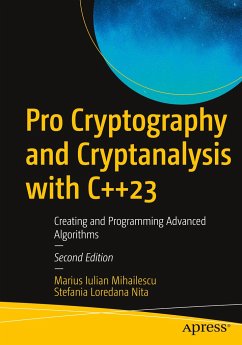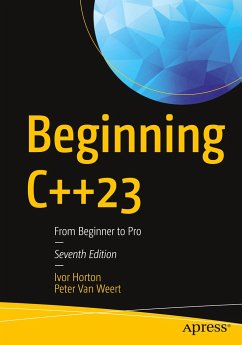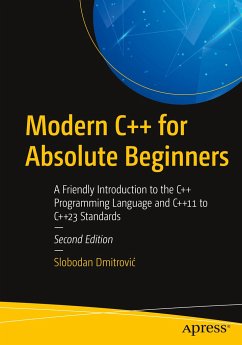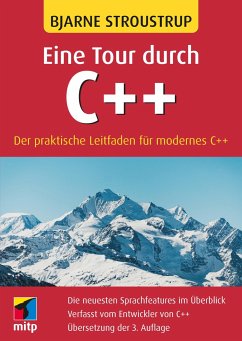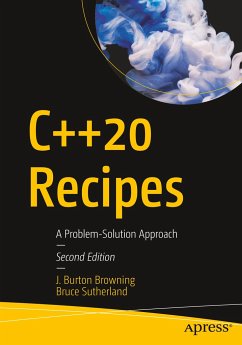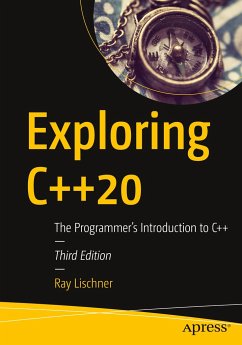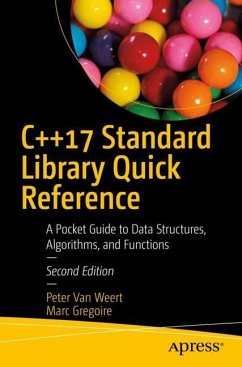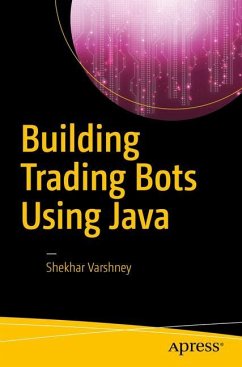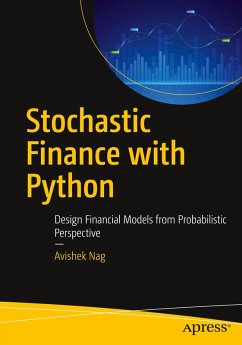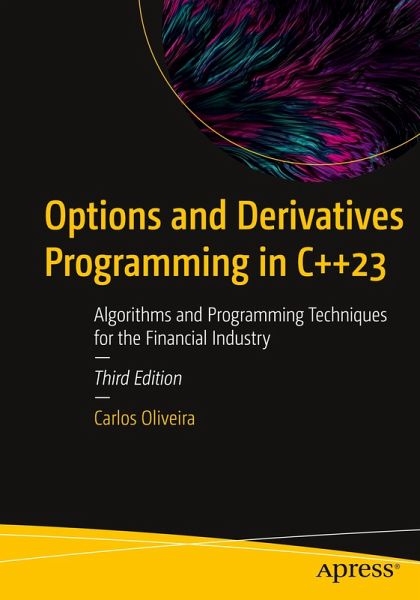
Options and Derivatives Programming in C++23
Algorithms and Programming Techniques for the Financial Industry

PAYBACK Punkte
20 °P sammeln!
This book is a hands-on guide for programmers who want to learn how C++ is used to develop solutions for options and derivatives trading in the financial industry. It explores the main algorithms and programming techniques used in implementing systems and solutions for trading options and derivatives. This updated edition will bring forward new advances in C++ software language and libraries, with a particular focus on the new C++23 standard. The book starts by covering C++ language features that are frequently used to write financial software for options and derivatives. These features includ...
This book is a hands-on guide for programmers who want to learn how C++ is used to develop solutions for options and derivatives trading in the financial industry. It explores the main algorithms and programming techniques used in implementing systems and solutions for trading options and derivatives. This updated edition will bring forward new advances in C++ software language and libraries, with a particular focus on the new C++23 standard. The book starts by covering C++ language features that are frequently used to write financial software for options and derivatives. These features include the STL (standard template library), generic templates, functional programming, and support for numerical code. Examples include additional support for lambda functions with simplified syntax, improvements in automatic type detection for templates, custom literals, modules, constant expressions, and improved initialization strategies for C++ objects. This book also provides how-to examples that cover all the major tools and concepts used to build working solutions for quantitative finance. It discusses how to create bug-free and efficient applications, leveraging the knowledge of object-oriented and template-based programming. It has two new chapters covering backtesting option strategies and processing financial data.. It introduces the topics covered in the book in a logical and structured way, with lots of examples that will bring them to life. Options and Derivatives Programming in C++23 has been written with the goal of reaching readers who are looking for a concise, algorithms-based book that provides basic information through well-targeted examples and ready to use solutions. What You Will Learn Gain insight into the fundamental challenges of the options and derivatives market Master the features of the C++ language used in quantitative financial programming Understand quantitative finance algorithms for options and derivatives Build pricing algorithms around the Black-Scholes model, and use binomial and differential equations methods Who This Book Is For Professional developers who have some experience with the C++ language and would like to leverage that knowledge into financial software development.



